At a conference in Goris, Susanna Shahnazaryan, President of the Goris Press Club NGO, said, “For the first time in Armenia, the issue of Syunik’s security was transferred from the political and media top field to those who carry it, where there is no political speculation or misinformation.”
The conference was focused on presenting the preliminary results of the “Human Security in Syunik Region” sociological survey, which aimed to identify the needs of residents in the region regarding human security.
This research was conducted as part of the “Improvement of Local Government Strategy in Syunik for Crisis Management and Public Protection” program, jointly implemented by the “Journalists for the Future” NGO, Goris Press Club, and the “Rainbow” Leaders’ Training Center in Kapan.
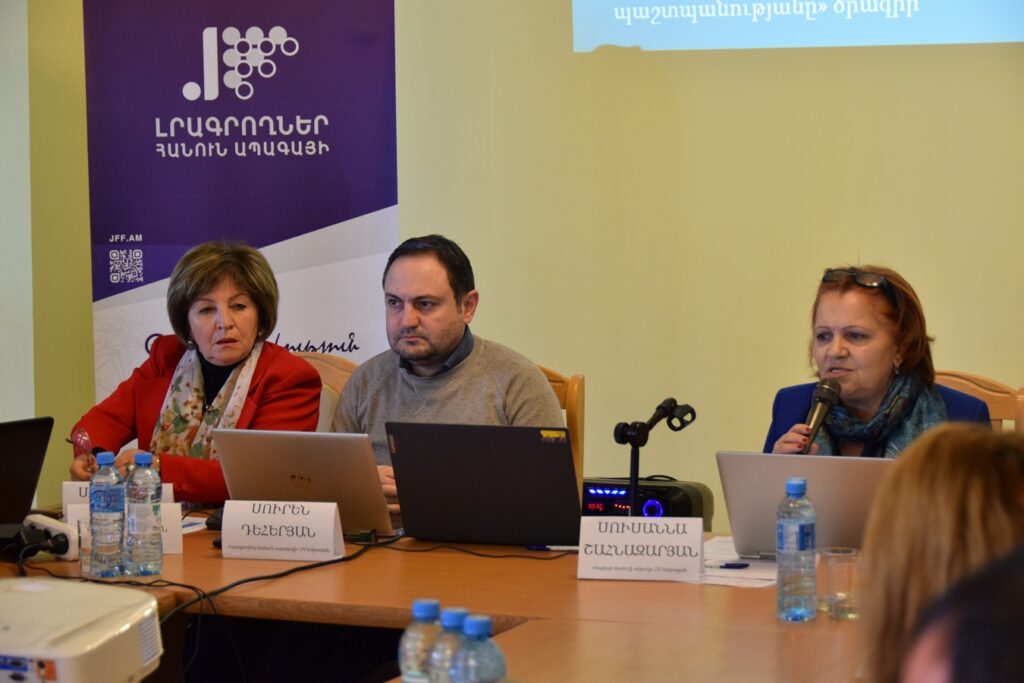
Representatives from the Syunik Regional Administration, local self-government bodies, civil society, and other interested parties attended the conference.
Prior to the research presentation, about 60 participants were briefed on the interdependence of security and development in the context of human security.
Suren Deheryan, President of “Journalists for the Future” NGO, highlighted during his presentation that the pillars of human security consist of three freedoms, the development of individuals and their environment, the protection of human rights, and the provision of a peaceful and safe life. He emphasized that the undermining of any of these pillars could threaten a person’s general well-being.
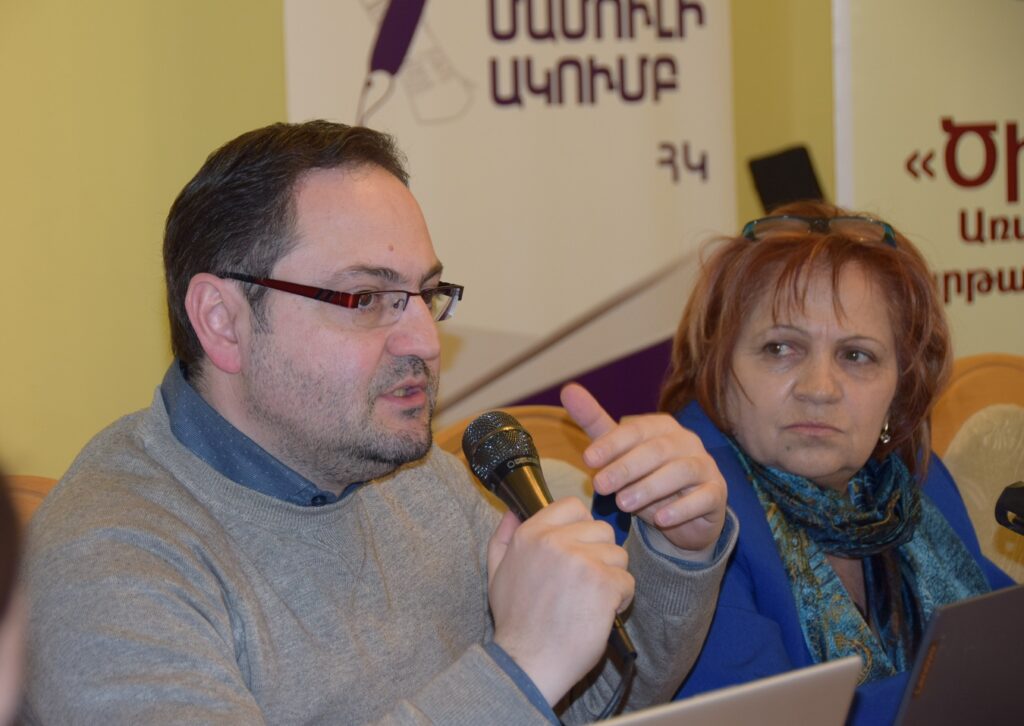
According to Suren Deheryan, a person may face threats related to insufficient access to food or personal religious beliefs, but when multiple freedoms are threatened simultaneously, a person loses their sense of security, which can lead to conflicts.
“Therefore, in order to ensure human security, it is important to address problems comprehensively by not only identifying symptoms but also solving the root causes of the problems.”
In addition to physical safety, which is maintained by the police, army, or law, other areas must be given equal importance to fully protect the right to human security. The United Nations has identified seven areas to ensure human security, namely food, economic, health, environmental, personal, political, and community.
During the presentation of the preliminary research results, sociologist Arevik Hambardzumyan explained that the findings collected through qualitative methodology indicate that each of the eight enlarged communities in the region has a different socio-economic and security environment.
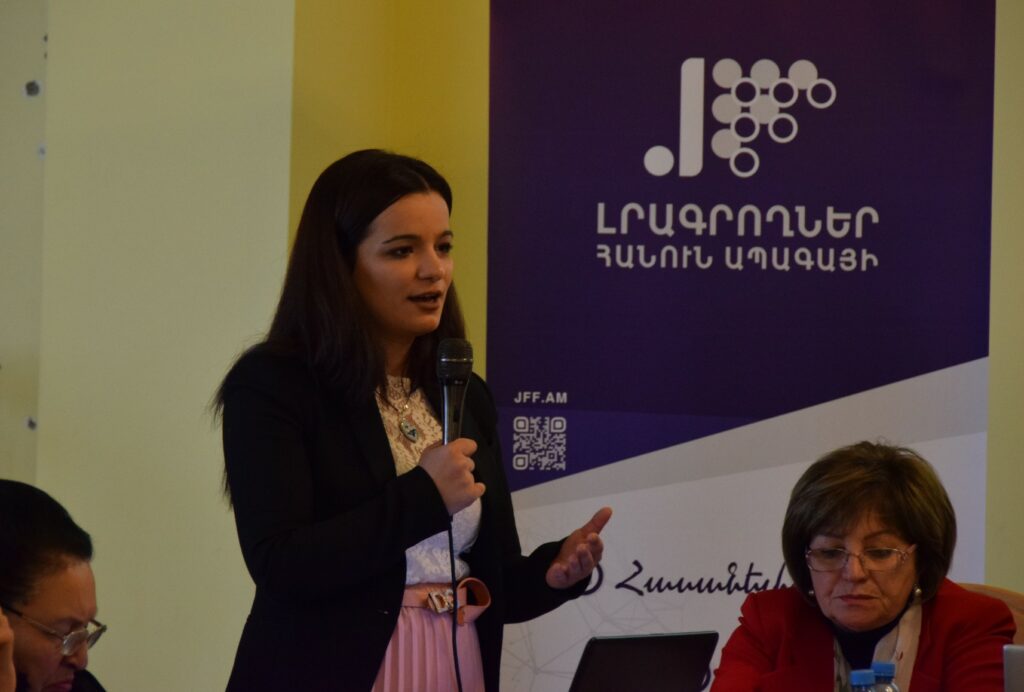
“As a result of the epidemic and the 44-day war, we revealed the problems of vital importance for the safe and secure life of the population of Syunik, the concerns, expectations, and existing opportunities of the residents were brought out in the fields of agriculture, employment, education, security, and other areas,” said Hambardzumyan.
“We conducted a human-centered security needs assessment within the framework of the research, which allowed us to highlight people’s perceptions of existing risks and threats and map them accordingly,” added Hambardzumyan.
The participants of the discussion expressed their observations on the work done.
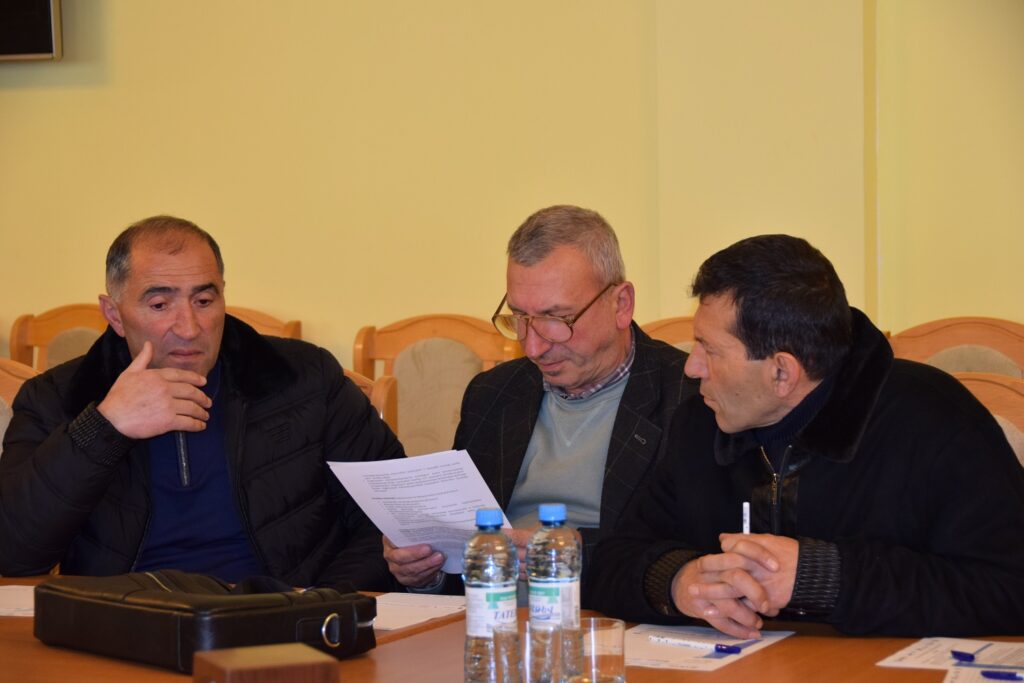
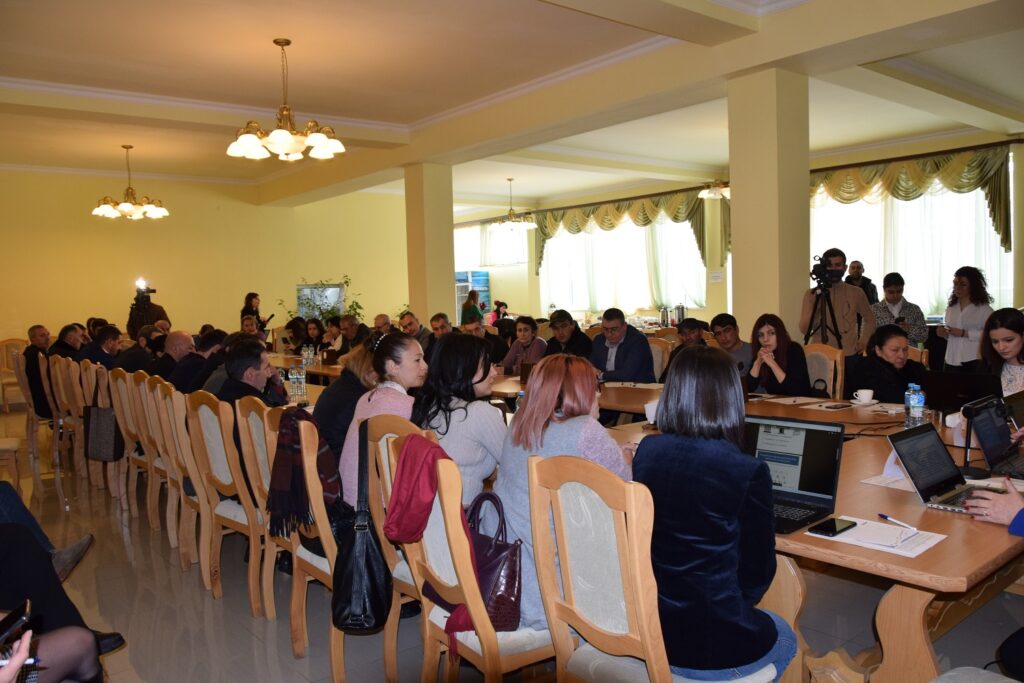
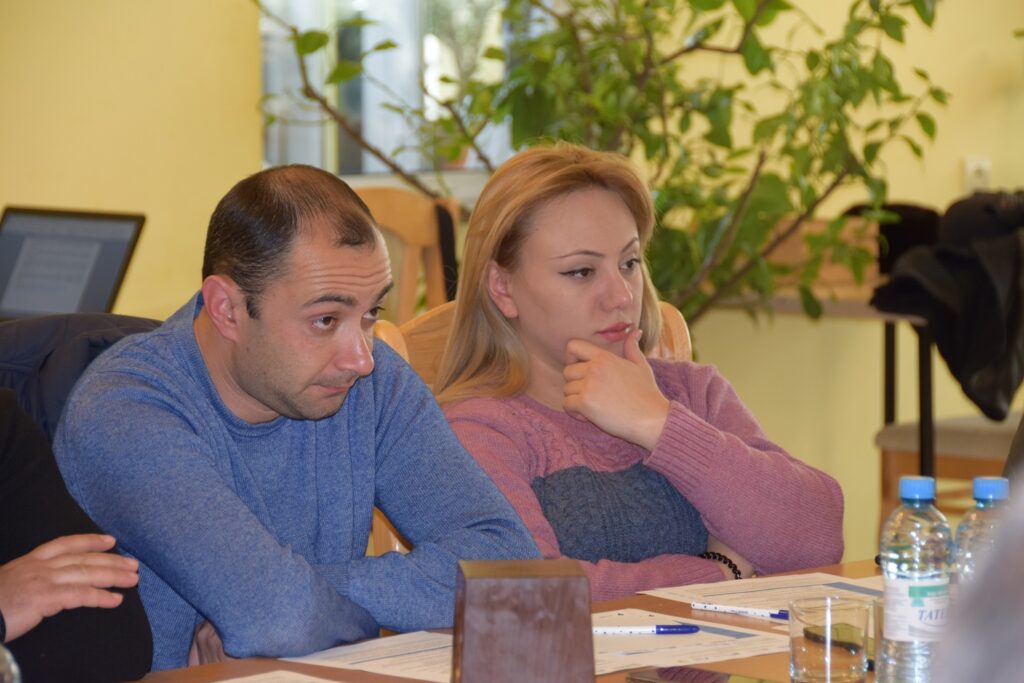
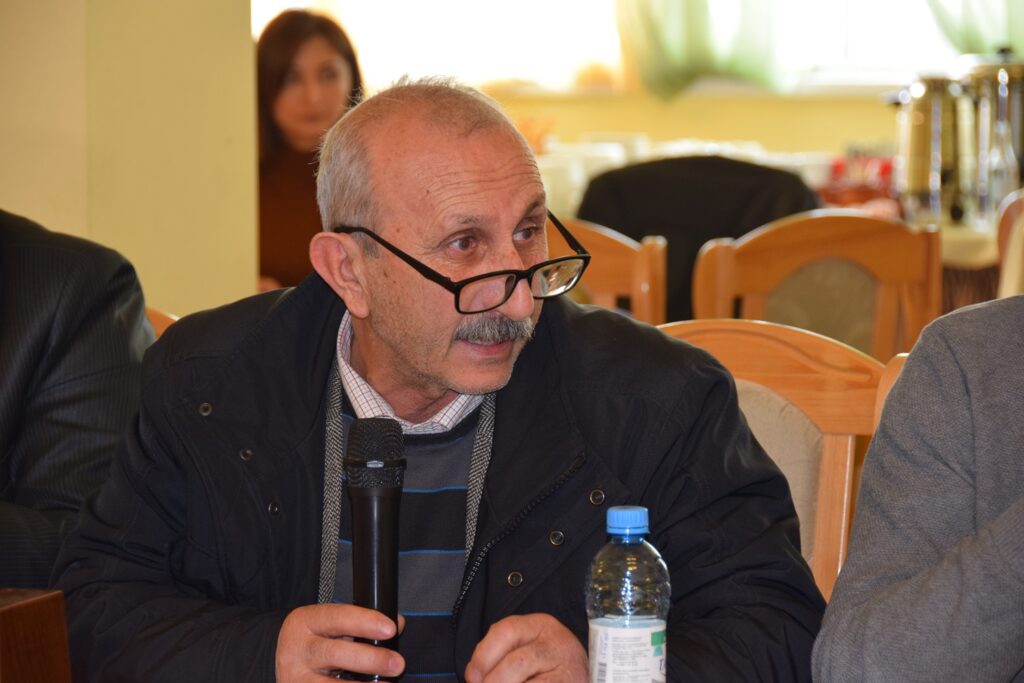
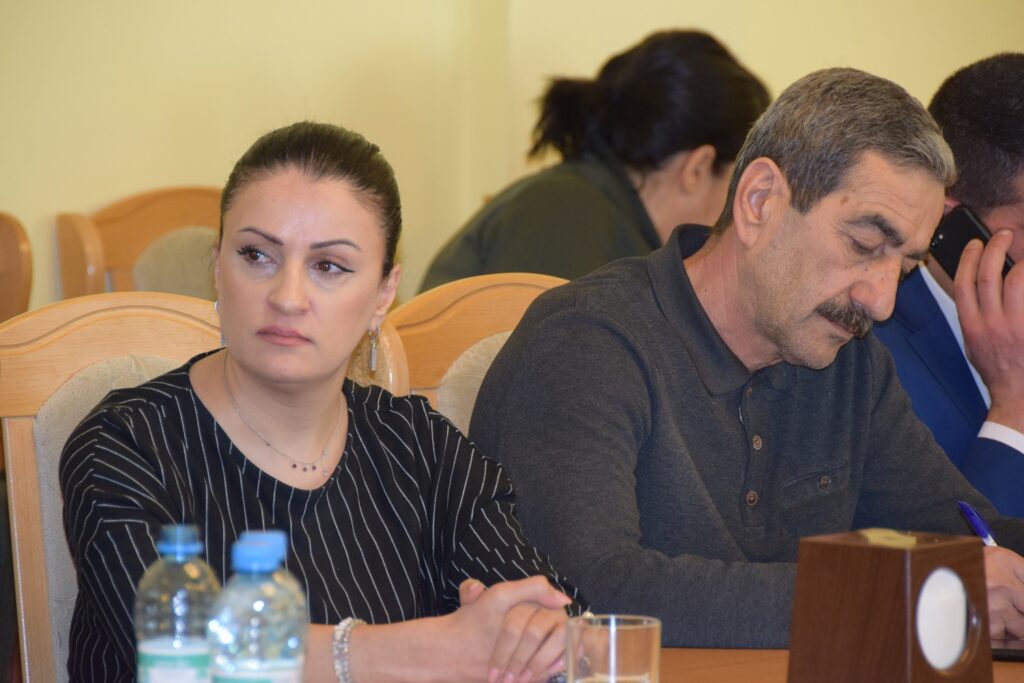
According to Aram Mirzoyan, deputy head of Tegh, it is important to develop a road map of solutions aimed at ensuring people’s safety, in addition to presenting the situation.
Karen Lazaryan, a member of the council of elders of Goris community, addressed the problems in the field of education that are directly related to the security situation.
“In the future, this document can become a representation of public opinion, which can serve as a basis both for developing the future strategic goals of the communities and for securing international investments in the communities,” said Irina Yolyan, a member of the Goris Community Council.
The research will be enriched and made more valuable by including the observations and suggestions of the event’s participants.
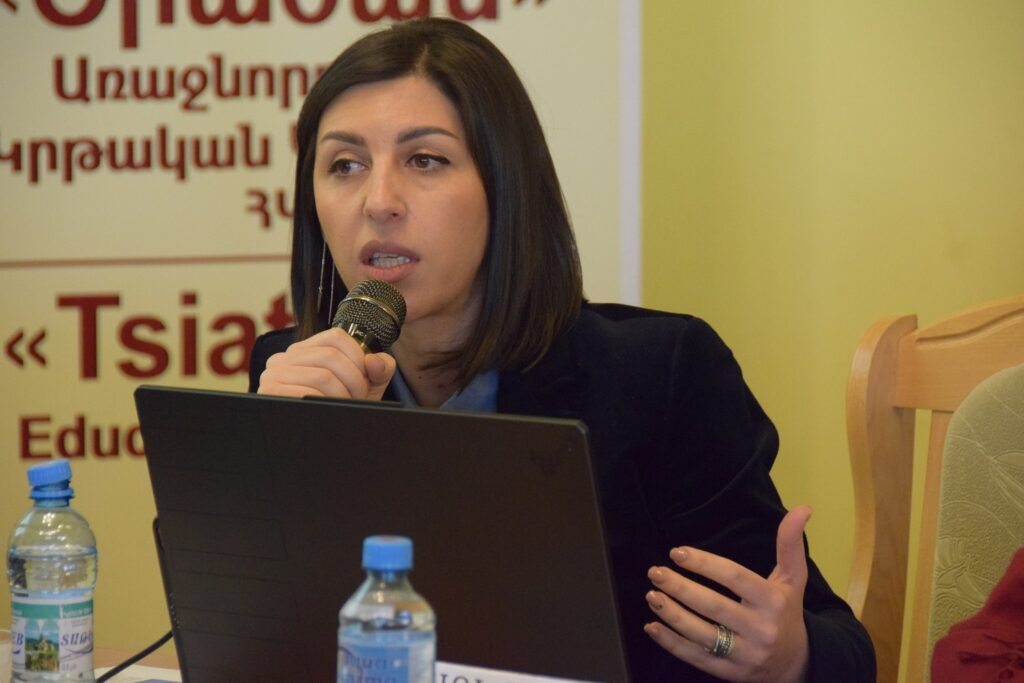
Based on the research, a concept of effective management of Syunik communities is being prepared, which, according to lawyer Tatik Tokhyan, will be people-centered, will offer interconnected solutions for the socio-economic development of communities, and ensure security.
This project is implemented under the auspices of the Data for Transparency Activity (DATA) program with the support of the United States Agency for International Development. The views expressed in this article: The content of the materials are solely those of the implementing organizations և their partners և do not necessarily reflect the views of USAID or the US Government.

